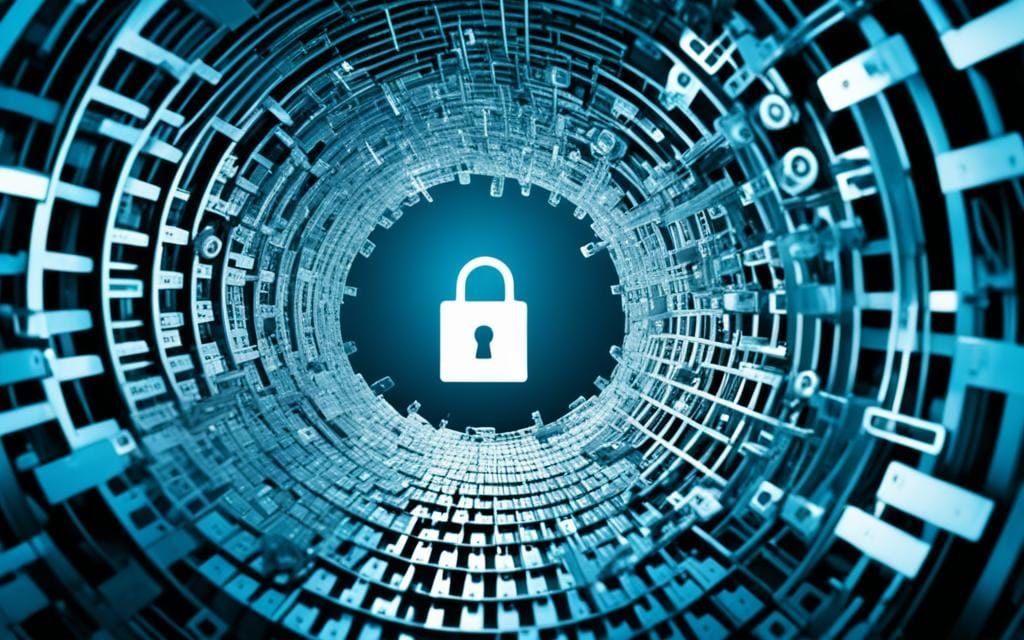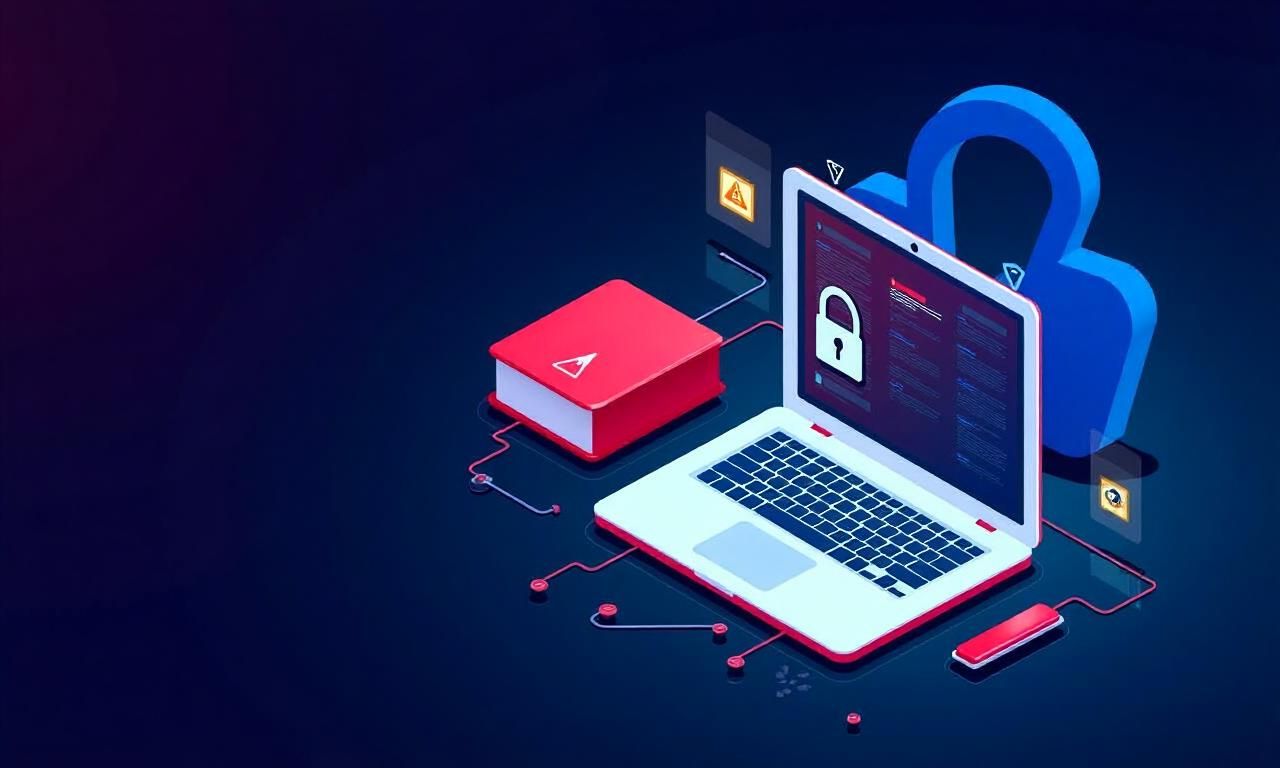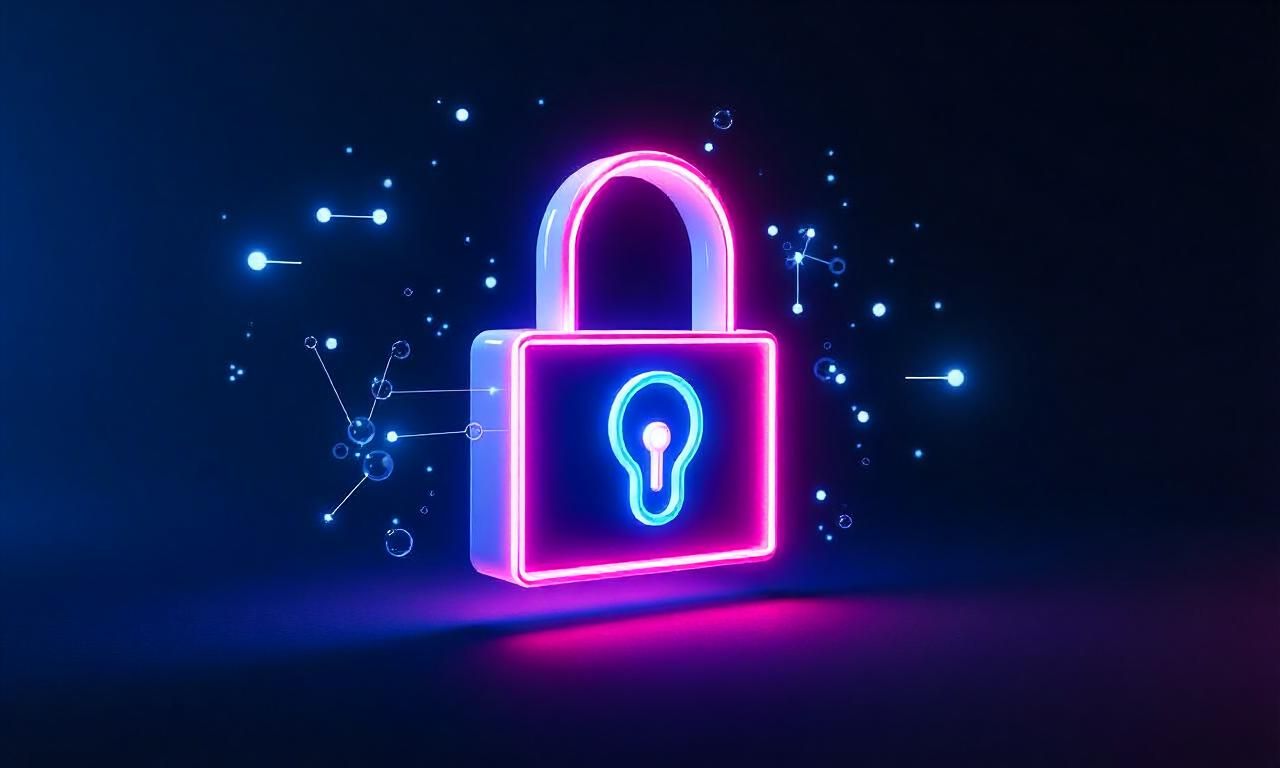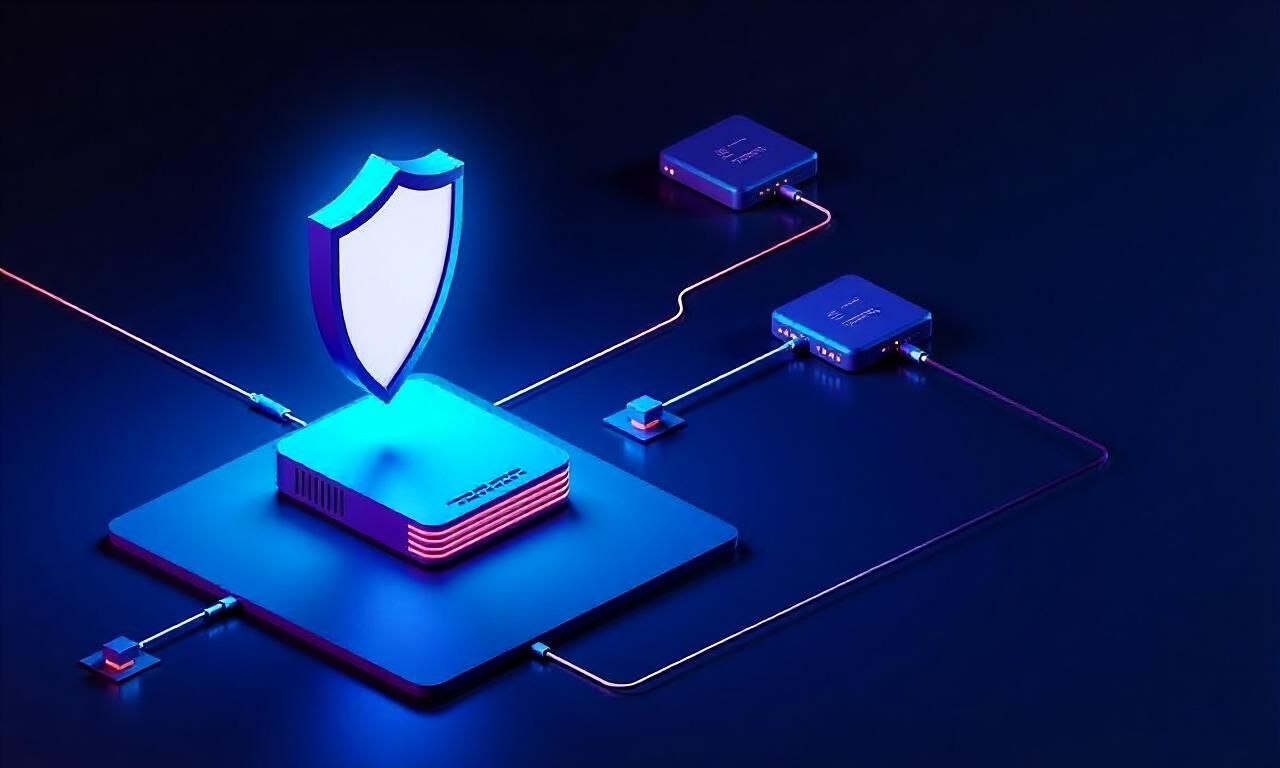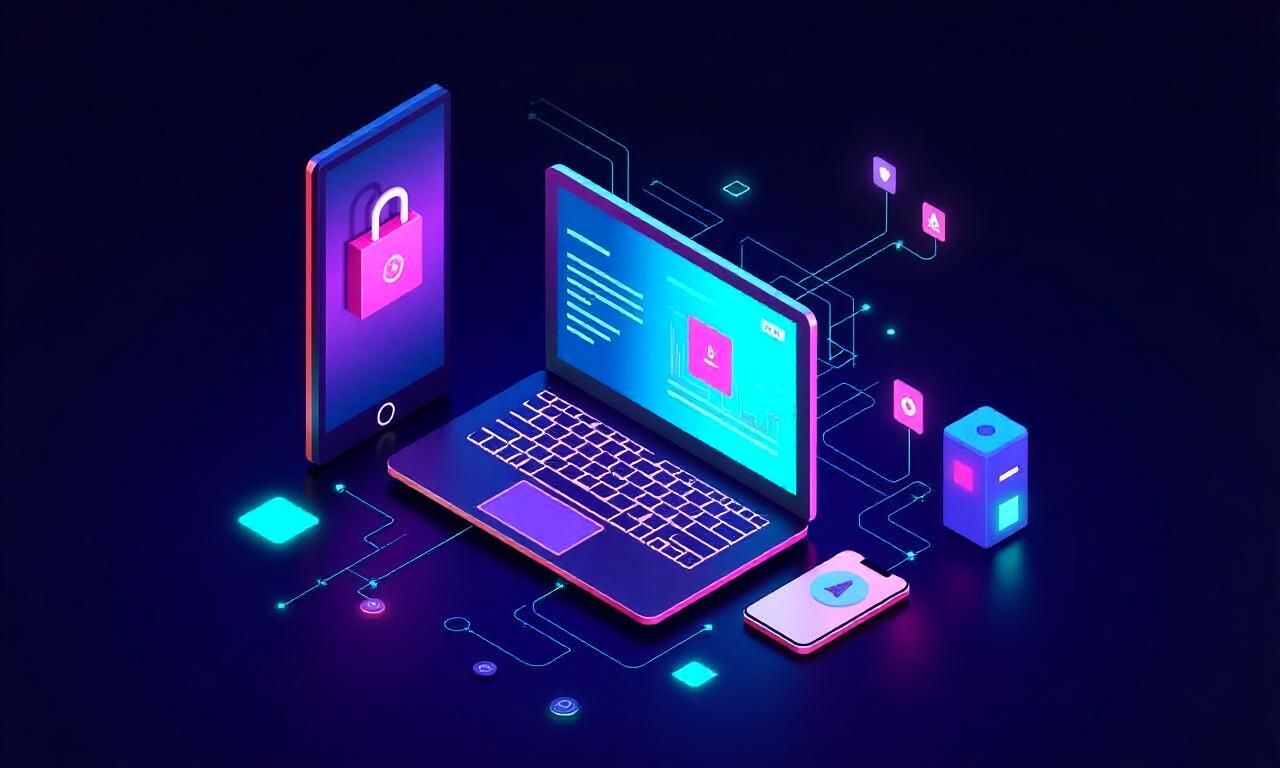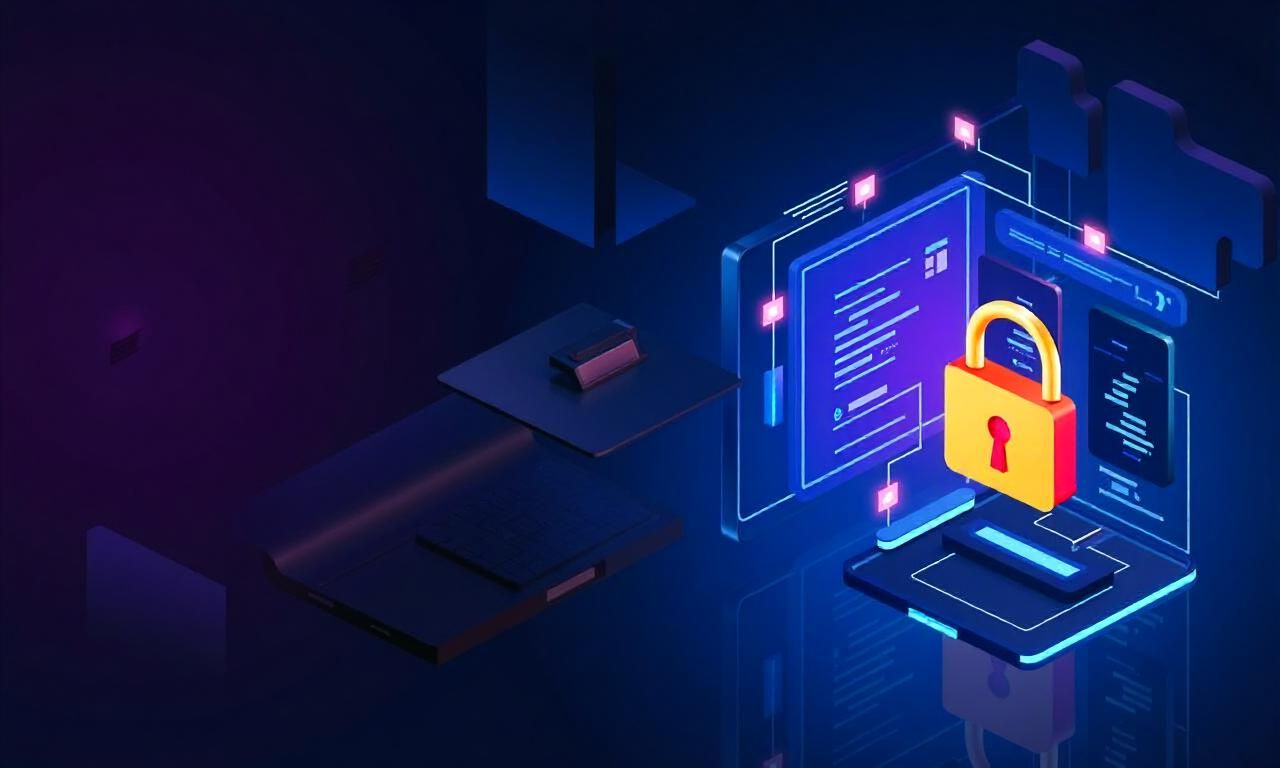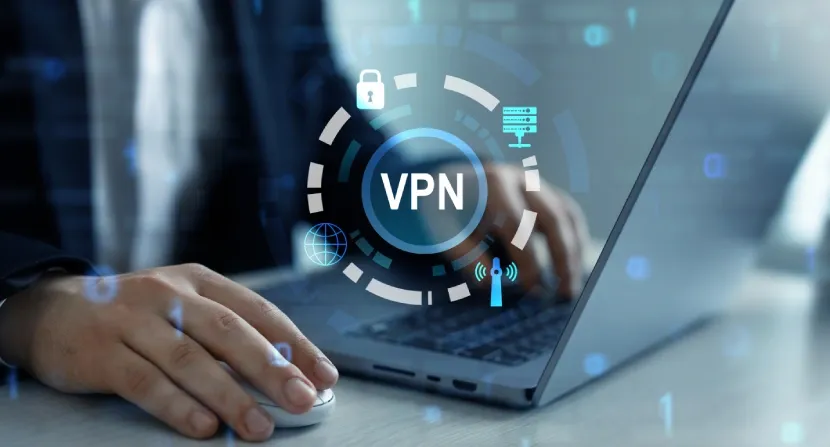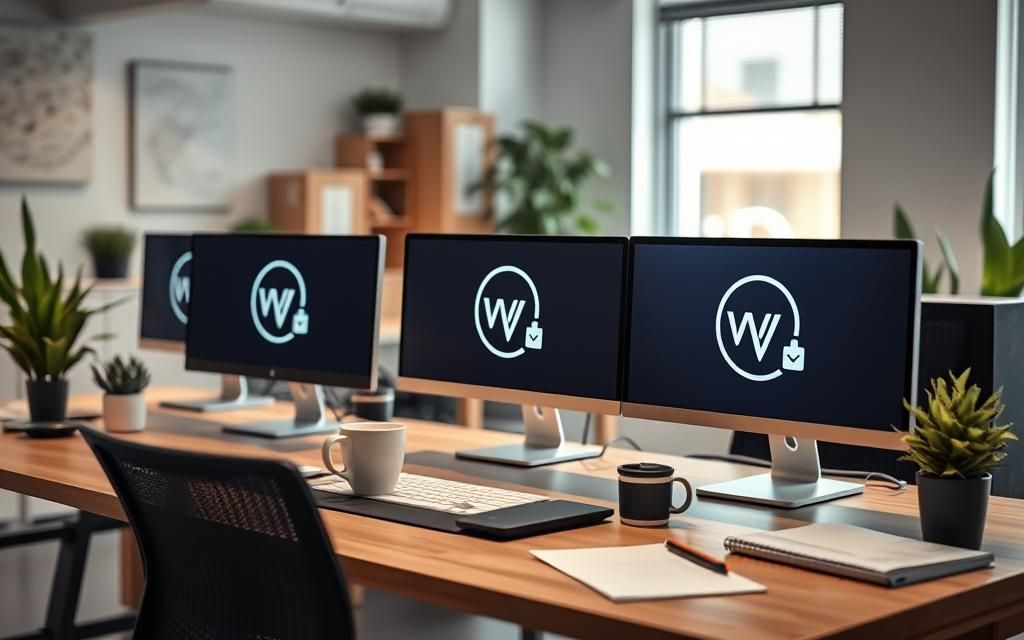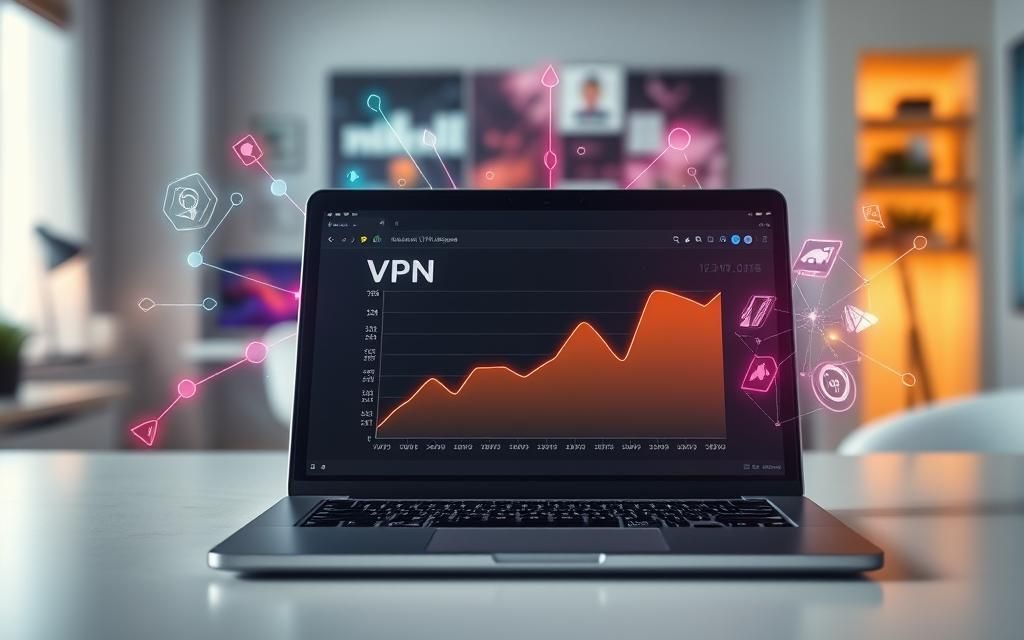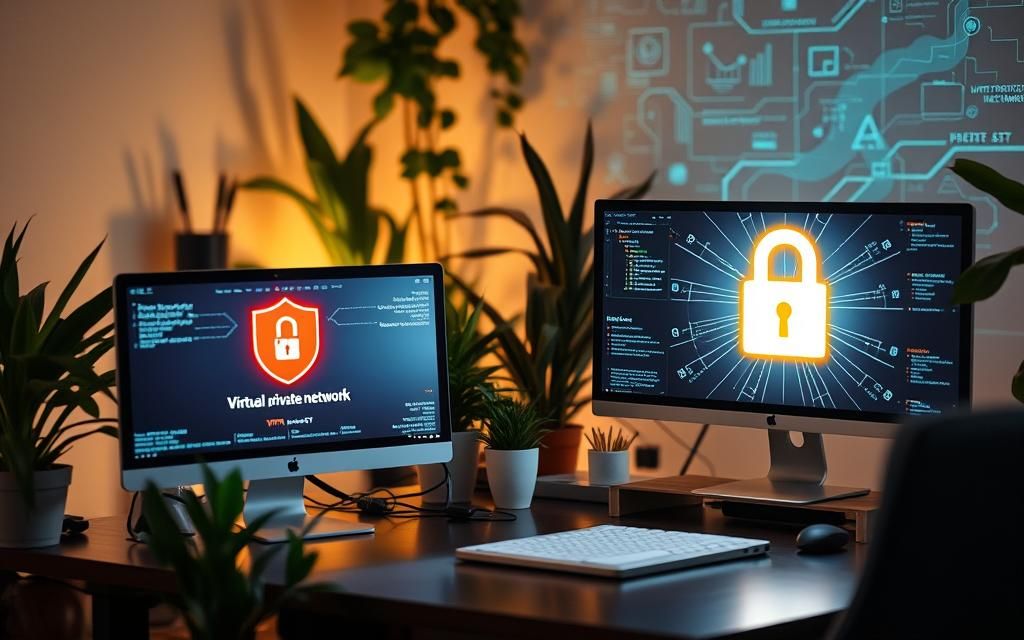We’re going to look at how a Virtual Private Network (VPN) works. We’ll explain what technology it uses and why it’s good for online security and privacy. You’ll learn the basics and the techie stuff, along with tips for picking the right VPN service provider. By the end, you’ll know how VPNs can make your online activities secure and private.
Table of Contents
ToggleWhat is a Virtual Private Network (VPN)?
A Virtual Private Network (VPN) creates a secure connection between you and the internet. It does this by sending your internet traffic through a distant server. Your online identity and actions are hidden, making it safer and private to use the internet.
Understanding the Basics of a VPN
A VPN acts as a secure gateway between your device and the internet. When you’re connected to a VPN, a private, encrypted path is created. This shields your IP address and location, guarding your online movements and personal data.
The Purpose and Benefits of Using a VPN
VPNs are used for numerous benefits. They bolster internet security, keep your online life private, help in getting past geographical blocks, and allow access to restricted content. With a VPN, you can keep your internet use hidden, protect your personal details, and explore the web freely and safely.
How Does a VPN Work?
Let’s dive into how a Virtual Private Network (VPN) works. We will look at how it creates a secure connection. We’ll also see why it uses encryption and a data tunnel to keep you safe online.
Establishing a Secure VPN Connection
When you connect to a VPN, your device creates a safe link with a server. This link is made through “VPN tunneling.” This means your online traffic goes through a safe, encrypted pathway to the VPN server.
Your device’s VPN software takes care of this. It makes sure your internet use is hidden from anyone not in the VPN.
Encryption and Data Tunneling
Encryption and tunneling are key parts of how a VPN keeps you safe. Before your data leaves your device, it’s scrambled using methods like AES or OpenVPN.
It’s then put in a protective tunnel and sent to the VPN server. There, it’s unscrambled and sent on to where you wanted it to go. This keeps what you do online private.
With a VPN connection, encryption keeps your data safe. Your online behavior is not visible to your ISP or hackers. A VPN is a solid choice for staying secure and private online.
VPN Protocols: The Backbone of Secure Connections
VPN protocols are vital for the safety of your online activities. They set the rules for how your device talks to a VPN server. This ensures your data is private and secure as it moves online.
Popular VPN Protocols Explained
In the VPN world, many protocols are well-known for being safe and efficient. Let’s look at some top picks and what sets them apart.
- OpenVPN: OpenVPN is a trusted, open-source choice known for its security and the ability to adapt. It uses strong encryption, a must for those valuing safety in their VPN connections.
- IPsec (Internet Protocol Security): IPsec bundles several protocols to secure internet traffic and data. It often works with IKEv2 for a full VPN solution.
- WireGuard: WireGuard offers speed and simplicity without compromising security. It’s a preferred pick for its modern approach to VPNs.
- SSTP (Secure Socket Tunneling Protocol): SSTP, developed by Microsoft, uses SSL/TLS to make a secure VPN link. It’s handy in places where common protocols are blocked.
Choosing the right VPN protocol depends on what you value in security and performance. Every protocol offers something unique, so it’s key to know your needs when selecting a VPN service.
Internet Security and Online Privacy with VPNs
A virtual private network (VPN) is great for keeping you safe online. It hides your internet traffic in a secret way, keeping your info safe. It also stops others from seeing what you do online. We’ll look deeper into how VPNs keep you safe and let you see things you want, even if they’re blocked.
Protecting Your Online Activities
When you’re online without a VPN, your internet provider can track what you do. And sometimes even others can see. This is bad for your privacy. People could use your data in ways you don’t like. But with a VPN, what you do online is like a secret code. No one can understand it. Your personal stuff is kept safe. This includes things like your passwords and bank transactions.
Bypassing Internet Censorship and Geo-Restrictions
Some countries block parts of the internet. This is called internet censorship. It can stop you from seeing or saying what you want online. By using a VPN, you can get around these blocks. You can see things as if you were in another country. This includes watching videos, playing games, or visiting sites that might be off-limits where you are.
VPN’s protect you online and help you see more on the internet. They let you use the internet more freely and safely. This means you can surf the web, find info, and use online services with less worry. VPNs give you more power over your internet experience.
Remote Access and Secure File Sharing with VPNs
VPNs boost online safety and privacy. They are key for safe remote access and file sharing, especially in business. With a VPN, companies can make sure their data stays safe. It creates a secure link between employees and the firm’s info, keeping secret data secure.
For businesses, remote access is vital. It lets workers connect to the company’s systems from anywhere. A VPN shields this connection, making sure no one unwanted sees the info. This way, things like client details and private files stay safe.
A VPN also makes file sharing safe. By using a VPN for transfers, sensitive data is safe from cloud or email risks. This is crucial for sectors dealing with such info, such as healthcare or finance.
| Feature | Benefit |
|---|---|
| Remote Access | Enables secure connections for employees to access corporate resources from any location, protecting sensitive data and login credentials. |
| Secure File Sharing | Provides an encrypted channel for transferring confidential files and documents, safeguarding against unauthorized access or data breaches. |
| Internet Security | Enhances overall internet security by shielding online activities and data from prying eyes, whether on public Wi-Fi or personal networks. |
| Data Encryption | Ensures that sensitive information, such as login credentials, client data, and proprietary documents, remains protected during remote access and file sharing. |
With VPNs, businesses make remote work safer. They improve collaboration and protect important digital info. Meeting the changing work world, safe remote access and file sharing have become musts for all companies.
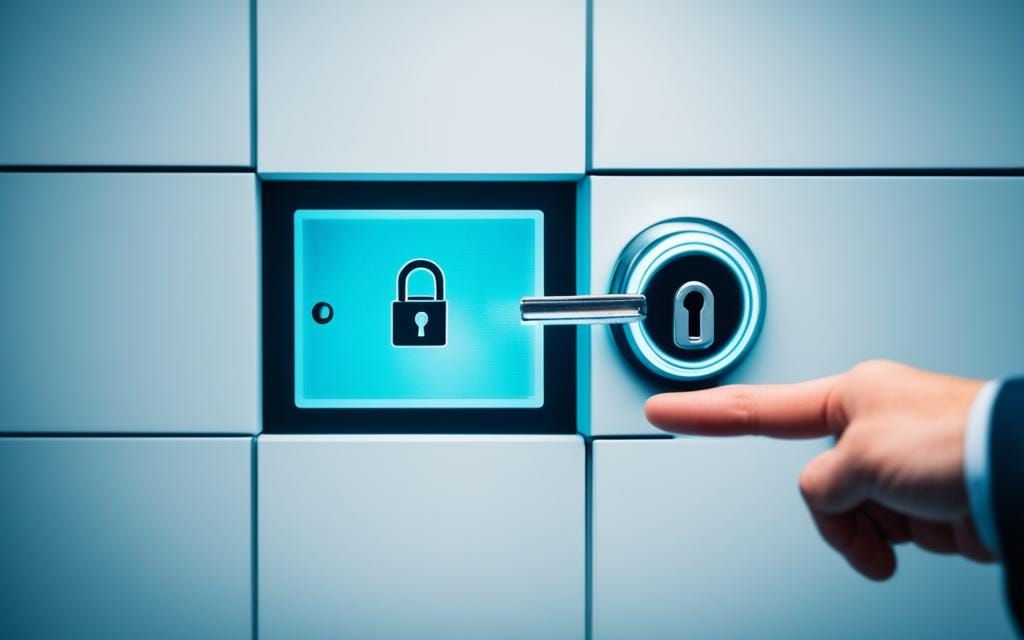
Choosing the Right VPN Service Provider
The demand for virtual private networks (VPNs) is growing fast. Because of this, many service providers are available. They all offer different features, prices, and security.
To find the right one for you, focus on what’s important. This will help you get a VPN that fits your needs. We will show you how to pick the best VPN for you. We’ll compare the top VPN services to help you decide.
Factors to Consider When Selecting a VPN
When choosing a VPN service, you should consider a few key points:
- Security and Encryption: A good VPN should have strong encryption like OpenVPN and AES-256. This keeps your online activities safe.
- Server Locations: A VPN with many servers around the world is best. This makes it easy to access content from anywhere.
- Connection Speeds: Pick a VPN that won’t slow down your internet browsing or streaming. Fast connections are a must.
- Privacy and Logging Policies: Look into how the VPN handles your data. Ensure they don’t track your online actions.
- Compatibility and Device Support: Check that the VPN works with all your devices, like phones, computers, and routers.
- Customer Support: Good customer service is important if you ever need help. Make sure the VPN provider offers quick and helpful assistance.
Comparing Top VPN Service Providers
| VPN Service | Security and Encryption | Server Locations | Connection Speed | Privacy Policy | Pricing |
|---|---|---|---|---|---|
| ExpressVPN | AES-256 encryption, OpenVPN, IKEv2/IPsec | 3,000+ servers in 94 countries | Consistently fast speeds | No-logs policy, based in the British Virgin Islands | $12.95/month (annual plan available) |
| NordVPN | AES-256 encryption, OpenVPN, IKEv2/IPsec | 5,500+ servers in 59 countries | Excellent speeds, optimized for streaming | No-logs policy, based in Panama | $11.99/month (annual plan available) |
| Surfshark | AES-256 encryption, OpenVPN, IKEv2/IPsec | 3,200+ servers in 65 countries | Fast and reliable connections | No-logs policy, based in the British Virgin Islands | $12.95/month (annual plan available) |
| ProtonVPN | AES-256 encryption, OpenVPN, IKEv2/IPsec | 1,700+ servers in 63 countries | Good speeds, optimized for privacy | No-logs policy, based in Switzerland | $5/month (annual plan available) |
By keeping these points in mind, you can confidently choose the best VPN. It’s a trusted method to ensure your online activities are secure and private.
Setting Up and Using a VPN
Thinking about online security or watching movies from other countries? Maybe you just want more privacy online? A VPN can help a lot. We’ll walk you through how to set up and use a VPN well.
Installing and Configuring a VPN Client
First, pick a good VPN service. Search online to find the best one for you. Then, download and install their app. The VPN service will often give you simple steps to follow. Next, set it up by adding your username and password. Choose a server location too.
Best Practices for Using a VPN
After setting up your VPN, there are some tips to remember. These will help you use your VPN better:
- Connect to the VPN before surfing the web. It keeps your data safe while online.
- Have the VPN cover all your online traffic, not just some parts.
- Always update your VPN app to keep your connection secure.
- Think about using a VPN with a kill switch. It stops your data from being leaked if the VPN turns off.
- Don’t use public Wi-Fi without a VPN. It protects your data from cyber snoops when on open networks.
By doing these things, you’ll get the best use out of your VPN. It’ll keep you safe, whether for personal or business needs.
Virtual Private Networks for Businesses
Virtual Private Networks (VPNs) are not just for personal use. They are key in the business world too. They offer many advantages for companies. This includes making remote access secure and improving data protection and collaboration at an enterprise level.
Secure Remote Access for Employees
With the rise of remote and hybrid work, secure remote access is vital. VPNs help create safe connections for employees everywhere. This allows teams to work on projects and share info securely. It keeps their online actions safe from threats.
Benefits of VPNs for Enterprises
VPNs provide several perks for businesses. They enhance data security, meet industry regulations, and overcome content barriers. This is especially helpful for global companies needing to access important data from different places.
Moreover, VPNs are great at protecting company data. They create a secure path for internet traffic, guarding confidential info from unauthorized access. This ensures the safety of the company’s assets.
Using VPNs for businesses and secure remote access can greatly improve a company’s cybersecurity. It allows for more confident and efficient operations in a digital world.
Limitations and Potential Drawbacks of VPNs
VPNs are essential for better online safety and privacy. Yet, remember they are not flawless. Users need to think about the limits and potential problems VPNs might bring.
Performance and Speed Considerations
VPNs might not always be great when it comes to internet speed. Connecting through a VPN can slow down your online activities. This is especially true for high-bandwidth tasks like video streaming or gaming.
The impact on speed varies. It depends on the VPN server’s location, its load, and the network setup. Some VPN services might be faster than others. So, choosing the right service is key.
Although VPN tech is getting better, users must be ready for some lag. Adjusting your expectations or exploring other options is wise when speed is a big concern.
The Future of VPN Technology
As our online world grows, so does the promise of Virtual Private Network (VPN) tech. New trends and advances are changing how we use VPNs for better security and privacy online.
Emerging Trends and Advancements
The big news in future of vpn technology is the use of the newest encryption. This tech includes next-level encryption, like post-quantum cryptography. It’s crucial for facing new cyber threats as our global connection and data use grows.
Another key trend is decentralized VPN structures. These use blockchain tech and spread out networks. This means VPNs could become more stable and private without any single point of control.
On top of that, cloud computing and edge computing will change how we access VPNs. Cloud tech will let us use VPNs on many devices easily. Meanwhile, edge computing will make our VPN connections quicker and smoother.
More people need safe ways to get online and protect their privacy. This means we’ll see new kinds of VPNs made for different jobs and people. They might be for big companies or just for personal use. So, the VPN world is getting more versatile.
To keep our digital selves safe, it’s important to keep up with vpn trends and changes. This ensures our online actions are guarded, no matter how the tech world evolves.
VPN FAQs: Addressing Common Concerns
Virtual Private Networks (VPNs) can be complex, leading to many questions. In this end part, we focus on addressing the key issues. This helps you understand a VPN’s benefits, its limits, and what to think about when using it.
Many ask, “Does a VPN really keep my online activities private?” The answer is yes. A good VPN hides your IP address, makes your internet traffic secure, and keeps your online actions private. But, selecting a respected VPN provider is vital for true privacy protection.
“Will using a VPN slow down my internet speed?” is another frequent question. While some delay is possible, advancements in VPN technology mean speed drops are minimal these days. Top VPNs provide fast and steady connections. Remember, speed can be influenced by server location, network load, and your internet speed.
Lastly, the legality of VPN use sparks common questions. In most places, using a VPN is legal. It’s seen as a tool to increase online safety and privacy. Just remember not to misuse it for illegal actions, which could get you in trouble.
FAQ
What is a Virtual Private Network (VPN)?
A VPN is a technology keeping your internet connection hidden. It makes a secure link between your device and the web. Your data travels through a remote server, so others can’t see your activities.
How does a VPN work?
Connecting to a VPN makes a secret path for your data. This path is protected by encryption. It keeps your data safe from people wanting to see it. The VPN server then sends your info safely over the internet.
What are the benefits of using a VPN?
VPNs help in many ways, like keeping your online actions private and secure. They let you see content blocked in specific places. For businesses, they offer a safe way to share files. You’re also protected from hackers when using public Wi-Fi.
What are the most common VPN protocols?
There are several VPN protocols you might encounter:
– OpenVPN is known for being very secure.
– IPsec keeps your communications private.
– L2TP/IPsec balances security and compatibility well.
– WireGuard is newer, faster, and efficient, and also gaining in popularity.
How do I choose the right VPN service provider?
Choose your VPN wisely by looking at these factors:
– How secure and encrypted it keeps your data.
– Where their servers are located and how big their network is.
– How fast and reliable their service is.
– Do they log your activity and what they do with that info.
– Their prices and what you get for them.
– How easy their system is to use and what support they offer.
How do I set up and use a VPN?
Setting up a VPN is easy:
1. Pick a VPN provider you trust and buy a plan.
2. Get their app for your device and install it.
3. Follow the app’s instructions to set up your connection.
4. Turn on the VPN to use it. Now your data is protected online.
What are the potential drawbacks of using a VPN?
VPNs aren’t perfect and can have downsides:
– They might slow your internet a bit because of the added protection.
– You could have trouble if your internet speed is low.
– Some apps or devices might not work right with a VPN.
– It’s possible for some VPNs to track your online activity.

